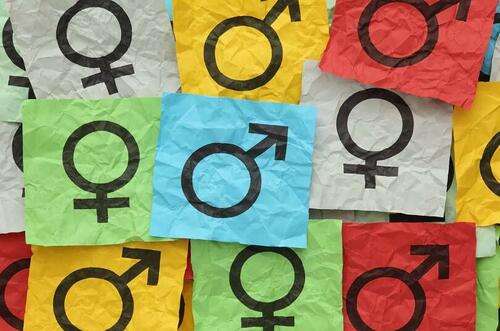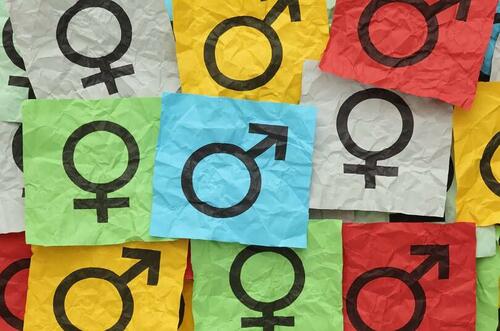Authored by John Mac Ghlionn via The Epoch Times,
Contrary to popular belief, the patriarchy doesn’t rule with an iron fist. Nevertheless, for some perverse reason, the myth of male privilege still persists. Today, only a fool could look around and honestly say that we live in a man’s world. Every 13.7 minutes, somewhere in the United States, a man takes his own life. For every female that commits suicide, there are four men ending their own lives.
Millions of boys and men lead lives of quiet desperation, rotting away inside self-imposed prison cells.
What should these men do? See a medical doctor, perhaps? Maybe visit a psychologist?
As I’ve noted before, the fields of medicine and psychology are, like the men of America, also in crisis. This isn’t to say that all doctors and all psychologists offer nothing of value, of course. This is to say that the institutions creating the doctors and psychologists of tomorrow are, for lack of a better word, damaged.
In the field of psychology, as the science writer Rolf Degen recently noted, approximately 1 in every 10 citations “across leading psychology journals is completely inaccurate, misrepresenting or even contradicting the cited findings.” Still reeling from the effects of the much-discussed replication crisis, psychology now has a crisis of reputation to wrestle with. To compound matters, the American Psychological Association (APA), the main accreditor for professional education and training in psychology, has, for years, demonized masculinity, labeling admirable qualities such as stoicism and competitiveness “psychologically harmful.”
As the psychologist Christopher J. Ferguson, a man who has been very critical of the APA in the past, told me, the APA’s “controversial position on men and masculinity is part of a larger problem of ideological capture for the APA, as it increasingly parrots far-left talking points, rather than educating people on the often messy and nuanced science.”
Sadly, he added, the APA “really stopped functioning as a science organization a long time ago, and its current disparagement of traditional men, in the absence of good data, should properly be viewed as prejudicial and unethical.”
Strong words. Ferguson, one of the few psychologists brave enough to stand up and speak out against the psychological establishment, knows that psychology, in its current form, isn’t fit for purpose.
If the men and boys of America can’t rely on doctors and psychologists for support, what should they do?
As Jordan Peterson’s success has shown us, many men, particularly young men, are looking to individuals rather than institutions for answers. However, as Peterson goes from being a public intellectual to a modern-day superhero intent on defeating the bad guys in Davos, young men are looking for new role models.
Enter Richard Reeves, an academic whose research focuses on issues pertaining to inequality and social mobility. For years, Reeves has been held up as a “rational” voice, a strong representative for the boys and men of America. However, Reeves, who seems like a very decent man, is affiliated with the Brookings Institution, a research group that The New York Times glowingly refers to as “a pillar of Washington’s liberal establishment” and a “prestigious, left-leaning institution.” In other words, Reeves, like so many other researchers and commentators, is a slave to the liberal machine, the very same machine that has steamrolled over men for years.
In his latest book, “Of Boys and Men,” Reeves goes to great lengths to praise feminism and the feminist framework of intersectionality. More concerningly, Reeves appears to be rather fond of using the term “cis heterosexual,” instead of using a normal term like “straight.” Is a man who uses such terminology really capable of helping normal, everyday boys who are struggling to find meaning in their lives?
There’s also Matt Pinkett, the author of the brand new book, provocatively titled “Boys Do Cry.” According to the British teacher and author, schools should provide “lessons in bromance” to address the mental health crisis among boys. However, like Reeves, Pinkett goes to great lengths to smuggle in trans-friendly jargon, even dedicating an entire chapter to the many ways in which masculinity overlaps with LGBTQ+ issues. Also, like Reeves, Pinkett places great emphasis on encouraging boys to be more vulnerable, to embrace the tears, and to cry with pride.
Although the two authors correctly identify the problems facing boys, their prescriptions leave a lot to be desired. Adam Lane Smith, a psychotherapist who has been commenting on the masculinity crisis for years, told me that “the current education system is built to operate in a way counter to how most boys learn and thrive.”
“The research is clear,” he said, with “an increasing number of boys being diagnosed by teachers and school staff with attention issues.”
These teachers and staff, added Smith, “then pressure parents to find a doctor to corroborate that diagnosis and immediately medicate the boy, or else he will be expelled.”
Even boys without violent tendencies are being pressured into medication or else they face expulsion, Smith told me. Part of this is due to the feminization of schools. In the United States, roughly 75 percent of teachers are female. Many of these teachers, noted Smith, are overworked and lack “the mental energy required to deal with 30+ children for so many hours in a day; the boys will often stick out due to their higher testosterone behaviors.”
“Many of these female teachers also appear to struggle to engage with male students and consistently grade female students higher to encourage them,” said the specialist.
Smith appears to be right. Girls perform better when they’re taught by a female teacher; the same, however, isn’t true for boys.
As studies show, single-sex schooling and especially more hands-on school approaches prove that supposedly “problematic” boys can thrive in environments suitable to their mental functioning. Most teachers learn how to “deal” with boys through various training sessions and workshops. As Smith noted, many of these sessions and workshops have, in recent times, “shifted to encourage teachers to view natural boy behaviors and energy levels as problematic to the profession.”
“Boys,” he contends, “are now a liability to be managed and pushed through the system as the teachers focus their energies on uplifting and empowering the girls.”








